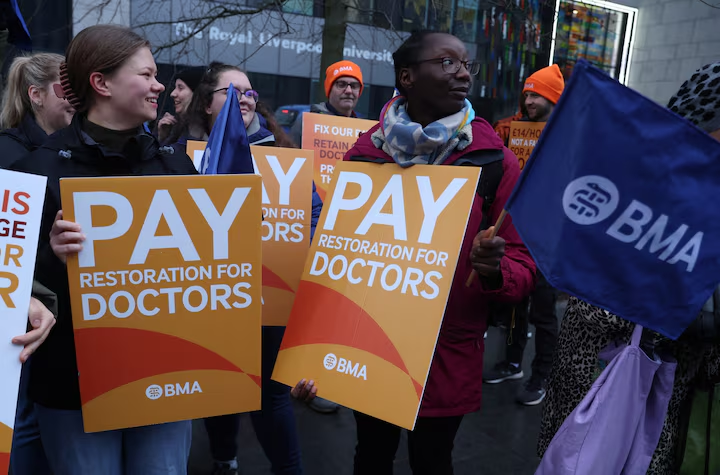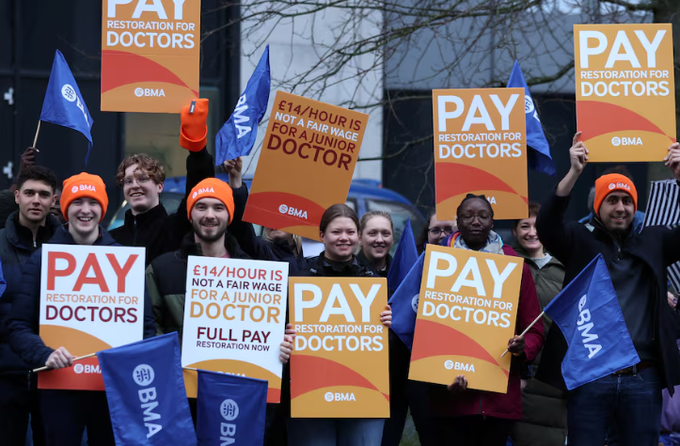- Get link
- X
- Other Apps
- Get link
- X
- Other Apps
Junior doctors in England are set to go on a five-day strike from July 25 to July 30, following a breakdown in negotiations with the government over pay. The British Medical Association, representing these doctors, announced the strike after rejecting the government's latest offer of a 5.4 percent pay rise. According to the BMA, this offer is far below the 29 percent increase they believe is necessary to make up for years of salary erosion caused by inflation and rising living costs. Junior doctors argue that their real-term earnings have been declining for more than a decade, and a substantial correction is long overdue.
read also:📢 U.S. Farm Secretary: No Amnesty for Undocumented Farmworkers
This upcoming strike is the latest in a long-running series of industrial actions taken by junior doctors. They had accepted a 22 percent pay increase last year, which was supposed to cover the period from 2023 to 2025 and had temporarily resolved tensions. However, with continued concerns over the cost of living and dissatisfaction with the current pay arrangement, the union has decided to resume industrial action. The strike reflects the deep frustration among frontline medical staff who feel undervalued and underpaid, especially after their critical role during the pandemic.
The BMA stated that without a credible offer to restore pay, they had no choice but to call for more strikes. The action is intended to pressure the government into revisiting the pay structure for doctors and showing more commitment to NHS staff.
The announcement of a five-day strike by junior doctors is expected to create serious challenges for the National Health Service. Thousands of hospital appointments, treatments, and planned procedures could face cancellation or delay. This comes at a time when the government claims progress is being made in reducing NHS waiting lists and improving services overall. The strike adds significant pressure to an already stretched healthcare system and raises concerns about patient care during the walkout period.
Health Secretary Wes Streeting expressed disappointment over the decision to strike. In a letter published on the government's website, he said that while discussions with the BMA had taken place, the government could not improve its pay offer this year. Instead, he proposed focusing on improving non-pay elements of the doctors’ jobs, such as working conditions, training, and staff support. However, the union maintains that pay restoration is the top priority and that working conditions cannot be improved without addressing low wages.
read also: Red Bull Horner SACKED after 20yr stint just 12 months on from sext scandal
The government’s stance has been criticized by union leaders and some health experts who argue that staff morale and retention are directly tied to fair pay. Without a stronger commitment to address real-term pay cuts, many fear the NHS could face continued disruptions and a further loss of skilled workers to private practice or overseas jobs. As the strike approaches, pressure is mounting on the government to find a resolution that can prevent further instability in the NHS workforce. The situation remains tense, with both sides holding firm to their positions.
- Get link
- X
- Other Apps


Comments
Post a Comment